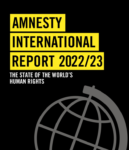


EXCESSIVE USE OF FORCE
Reports of unnecessary and excessive use of force by law enforcement officials during the policing of demonstrations persisted. In May, student Yiannis Dousakis sustained serious injuries to his mouth and jaw after riot police reportedly used unlawful force including stun grenades to disperse students peacefully protesting at Thessaloniki University. In November, a court rejected the authorities’ appeal against a first instance decision that found the Greek state responsible for the serious injury of journalist Manolis Kypreos by police in 2011.
RIGHT TO LIFE
In May, a court found two men guilty of lethal bodily harm in connection with the death of LGBTI activist Zak Kostopoulos in 2018. Four police officers also charged in connectionwith Zak Kostopoulos’s death were acquitted,raising concerns around impunity. In September, a prosecutor proposed thatseven police officers be referred for trial oncharges of homicide with possible intent inrelation to the killing of Nikos Sambanis, anunarmed 18-year-old Roma man who diedfollowing a fatal shooting by police in October2021. In December, Kostas Frangoulis, a 16-yearold Roma was shot in the head during apolice chase and died in hospital eight dayslater. A police officer was charged withhomicide with possible intent and illegallyfiring his weapon and was released onconditional bail.
REFUGEES’ AND MIGRANTS’ RIGHTS
Over 18,000 refugees and migrants arrivedby sea and land, compared with some 9,000in 2021. The mortality rate increaseddramatically, with 326 estimated dead andmissing people, compared to 115 in 2021.As tragic shipwrecks in October andNovember led to dozens of deaths andmissing people, UNHCR, the UN refugeeagency, and the International Organization forMigration called for safe pathways. On Samos, authorities continued to illegallydetain some of the asylum seekers residing inthe EU-funded “closed-controlled islandfacility”, by preventing them from exiting.
PUSHBACKS
NGOs and journalists continued to reportpushbacks and other abuses against refugees and migrants on land and at sea. Inseveral instances, groups were stranded inharrowing conditions on islets in the Evrosriver. In some cases, despite the EuropeanCourt of Human Rights (ECtHR) orderinginterim measures in favour of the individualsand asking Greece not to remove them, rescue operations by the authorities werereportedly late, or people were pushed back. In March, the National TransparencyAuthority (NTA), a body tasked by thegovernment to investigate pushbacks,announced the conclusion of an investigationwhich found no irregularities in the conduct of the Greek authorities. NGOs requested that the NTA release the full report, called for accountability and transparency and restated that the NTA could not be considered constitutionally independent. The ECtHR delivered a milestone ruling in July concerning the sinking of a migrant boat off the island of Farmakonisi in 2014, when 11 of the 27 passengers died. The applicants argued that the boat had capsized because the Greek coastguard used dangerous manoeuvres to push them towards Türkiye. The ECtHR found Greece responsible for several violations, including of the right to life, due to shortcomings in Greece’s rescue operations and investigation of the incident. Several pushback cases remained pending before the ECtHR and the UN Human Rights Committee at the end of the year. In October, news outlets leaked a report by OLAF, the EU’s anti-fraud agency, which examined serious allegations against the EU Border and Coast Guard Agency (Frontex), including the “possible involvement in and/or cover-up of illegal pushbacks” in Greece. The report found serious faults in Frontex’s handling of incidents, which raised fundamental rights issues.
ECONOMIC, SOCIAL AND CULTURAL RIGHTS
In February the authorities announced the termination of the EU-funded ESTIA urban housing scheme for asylum seekers in vulnerable situations and reduced accommodation places. NGOs expressed concerns that those affected were transferred from apartments, with little notice, to camps in isolated locations, with negative implications for their access to essential services. NGOs reported that recognized refugees returned to Greece under the EU’s Dublin Regulation faced obstacles, including in receiving identification documents, which affected their access to healthcare, housing and other services.
HUMAN RIGHTS DEFENDERS
In June, the UN Special Rapporteur on the situation of human rights defenders denounced the criminalization of humanitarian assistance and the onerous registration requirements imposed onorganizations working in this field. Criminal proceedings against human rightsdefenders Sarah Mardini and Séan Binderarising from their work rescuing and assistingrefugees and migrants remained open.In December, the founder of the NGO GreekHelsinki Monitor, Panayote Dimitras, undercriminal investigation for his work on therights of refugees and migrants, wassummoned to appear before a judge forfelonies related to his work with asylumseekers and risked house arrest and a banon his work for the NGO.
RIGHT TO PRIVACY
In April, media reports revealed that thephone of Greek journalist Thanasis Koukakishad been infected by the spyware Predatorbetween July and September 2021 and hadalso been wiretapped by the Greek NationalIntelligence Service (NIS) in 2020. The leaderof the PASOK-KINAL opposition party andmember of the European parliament NikosAndroulakis, and Christos Spirtzis, a formerminister of the SYRIZA opposition party, werealso targeted with Predator. The phone ofNikos Androulakis was additionallywiretapped by the NIS. A judicial investigation began in April into the spywareallegations, and in November another judicialinquiry was initiated after a newspaperpublished a list of high-profile individualsallegedly under state surveillance and/ortargeted with Predator. In December, parliament passed a controversial bill thatlacked effective safeguards for individualssubjected to surveillance, and legalized theuse of spyware technology by the authorities.
FREEDOM OF EXPRESSION
In February, human rights defendersPanayote Dimitras and Andrea Gilbert wereconvicted of “false accusation” after they hadsubmitted a complaint about what theydeemed an antisemitic and discriminatorystatement made by a senior bishop of theGreek Orthodox Church in 2017.
In May, a court in Athens heard a lawsuitagainst journalist Stavroula Poulimeni and the independent media cooperative Alterthess for allegedly breaching data protection laws by reporting on the conviction of a gold mining company’s senior executive for environmental damage.
FREEDOM OF ASSEMBLY
In September, the president of the Federation of Greek Hospital Doctors’ Associations was referred to trial after being charged under a controversial law on public outdoor assemblies for alleged insubordination and obstruction of traffic during a health workers’ protest in September 2020. Concerns arose about the prosecution of two Amnesty International activists indicted on several misdeamenor charges following their arrest by police after a protest in November.
DISCRIMINATION
In April, the Racist Violence Recording Network reported 72 incidents of racist violence in 2021. The appeal trial in the case of the far-right Golden Dawn party commenced in June. In a landmark verdict in October 2020, the first instance court found, among other things, that the party’s political leadership had been guilty of running a criminal organization whose members had committed a series of violent crimes including against migrants and refugees.
CONSCIENTIOUS OBJECTORS’ RIGHTS
Serious violations of the rights of conscientious objectors to military service continued, including trials and repeated sentencing by military courts. According to official data, revealed in 2022, in 2021 the percentage of recognition for conscientious objectors who invoke non-religious grounds had fallen to 0%. Several appeals to the Supreme Administrative Court against the discriminatory rejection of applications for conscientious objector status were pending at the end of the year. In December, a retrogressive proposed legal amendment sought to increase the number of military members of the committee examining such applications. Greece has not implementedthe 2021 UN Human Rights Committeedecision in the case of conscientious objectorLazaros Petromelidis, which found multipleviolations of the ICCPR.
VIOLENCE AGAINST WOMEN AND GIRLS
During the year, 17 women were killed bytheir partners or former partners. In October, a 19-year-old woman reportedbeing raped by two police officers in Omóniapolice station in Athens. The two officerswere charged with group rape and releasedon conditional bail. A third officer wascharged as an accessory. The investigationwas ongoing at year’s end.
ECONOMIC, SOCIAL AND CULTURAL RIGHTS
In November, Amnesty International filed aCollective Complaint with the Council ofEurope’s European Committee of Social Rights. This documented how the Greekauthorities breached the rights to health andnon-discrimination because of the impact ofausterity measures introduced following theeconomic crisis of 2009-2010 and how thiscontinued to affect the health system’s abilityto respond to the Covid-19 pandemic.
DETAINEES’ RIGHTS
In October, civil society expressed concernsthat new legislation reforming theCorrectional Code would further limit prisoners’ rights, including that of temporaryrelease, and contribute to the persistentovercrowding in Greek prisons.

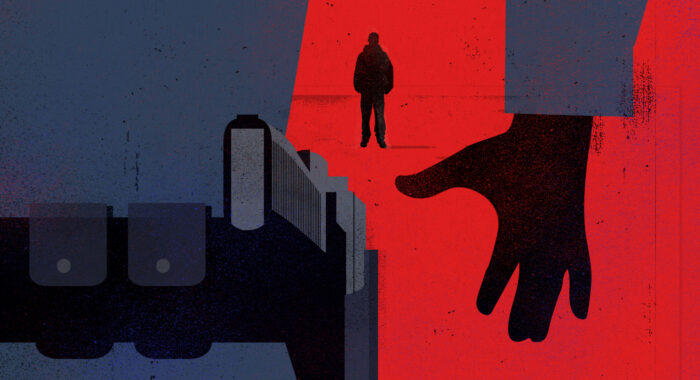

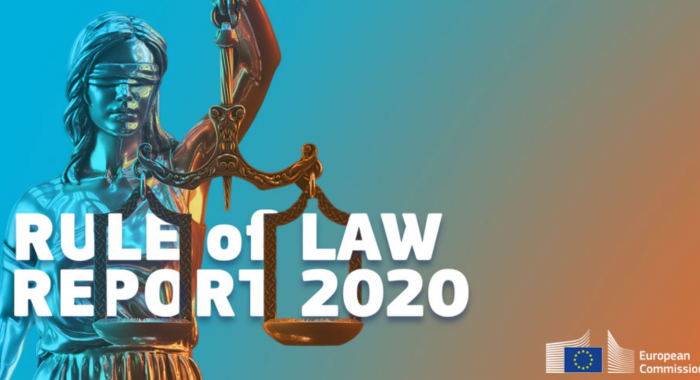

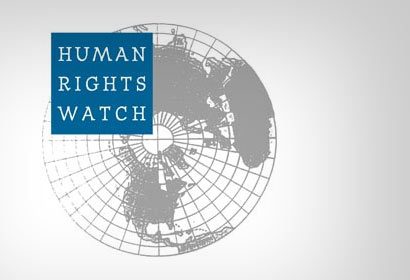

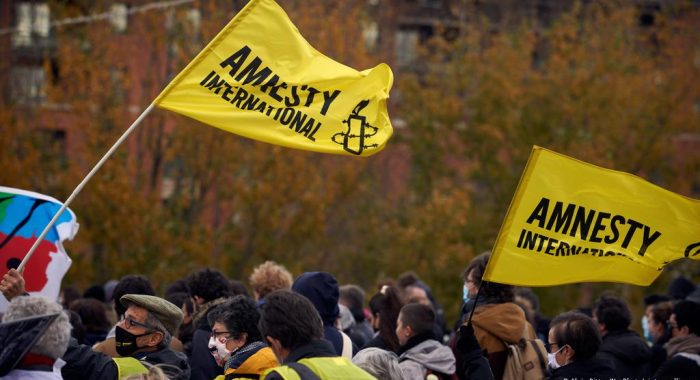

Bank Account number: 1100 0232 0016 560
IBAN: GR56 0140 1100 1100 0232 0016 560
BIC: CRBAGRAA
![]()
In a time where the very foundations of democracy are gradually being eroded by the rise of extreme nationalism, alt-right movements, the spread of disinformation and corporate capture, the efforts of organisations such as Vouliwatch are more relevant than ever.
We rely on the generosity of each and every one of you to continue with our efforts for more transparency and accounta
By financially supporting Vouliwatch you support our litigation strategy, our campaigns for transparency and accountability in the political system, the development of new civic tech tools, our research projects and last but not least our impartial and accurate